What Is PST And When Does It Apply?
Saskatchewan's Provincial Sales tax is a consumption tax. This means all goods and services bought, sold or consumed in Saskatchewan are subject to a six percent tax. It is to be charged on goods and services imported to be used within the province. Both new and used goods are subject to this tax.
Bookkeeping for PST on sales for most goods and services is straightforward. The business is responsible to collect the six percent tax and remit it to the Provincial government (Minister of Finance). The tax is applied to the retail price and collected by the business. It is not an income for the business, it is recorded as a liability (money owed).
At the end of the remittance period, the business is to remit the total PST collected on its retail sales and submit it the Minister of Finance. PST Inputs are typically irrelevant when calculating the PST owed. If a business has $20,000.00 in sales in a month, the PST collected and now owed is $1200.00. Even home-made crafts and other products sold at a flea market or trade show are PST applicable and these businesses must register. If your business typically does not charge PST on its services but sells products, such as massage therapists, PST must be charged on any product regardless of the dollar amount.
How Often Should PST Be Charged?
The basic small business bookkeeping rule of thumb is PST is to be charged only once. There are some goods and services that are still PST exempt such as Life Insurance premiums, land, Residential rent, lawn and snow care services and most groceries remain PST exempt. Saskatchewan PST is not to be charged on goods and services provided to consumers(businesses) outside of Saskatchewan. Non-Saskatchewan residents must pay the six percent sales tax on any products and services sold within the province of Saskatchewan.
PST Remittance Period
The PST remittance period varies depending on the monthly sales and dollar amount of tax collected. Typically, a new business will be given an annual remittance period. Any business can also elect to file monthly and quarterly. The Ministry does have the final say and dictates the reporting periods, again based on the amounts being remitted. It always based on the calendar year for both sole proprietors and corporations.
The PST Remittance is always done on the 20th of the following month even if it is an annual return. All annual returns are for the period of January 1st to December 31st and are to be filed and paid by January 20th of the following year. If quarterly, then the return and paid is due, April 20th for the January 1st to March 31st quarter for example.
The Ministry will charge a late filing penalty and will charge interest on any overdue balances. The Ministry of Finance has the power to garnish and seize bank accounts and receivables of any business that has not paid PST.
Small Business Bookkeeping for Saskatchewan Provincial Sales Tax (PST)
All your sales invoices should list the item or service being sold plus the total retail amount. The percentage of tax, GST @ 5%, PST @ 6% should be separate line items.
PST and inventory
Any purchases that are intended for resale, such as inventory, are PST exempt. Your PST number will be required by the supplier to verify the tax-exempt status. If PST was paid on exempt inventory items, the PST can be claimed and used to reduce the PST to submitted on sales. The bookkeeping for PST paid on exempt items is like the tracking of the GST Input credits. It can be tracked as separate PST paid on purchases or posted directly to the PST Liability account. Regardless, which method you use, keep proper records to verify your numbers to PST. You may be asked to explain why your PST collected does not match your sales.
PST and out of province purchases, self-assessing
All businesses registered in the province must register or licensed with the Provincial Ministry of Finance. Unlike GST, PST registration is mandatory even if the business does not charge PST. The main reason being is every business must PST self-assess on any items being brought into the province to be used for its own consumption. Many new business owners and bookkeepers are not aware of this ruling or do not know how to account for it. Annually, PST auditors recapture large dollar amounts of PST on purchases that should have been PST self-assessed.
All tools and equipment purchased out of province, this includes US purchases, must be self-assessed, reported and submitted to the Provincial Government. This was brought in effect to help Saskatchewan based businesses be more competitive in the marketplace. The same rule applies to all consumables, office supplies, advertising and promotional items, plus software. It is irrelevant if these items can only be obtained out of the province. Software includes online appointment scheduling and staff schedules are all PST applicable.
Website and website development also are included. Inventory items for resale, which will be taxed, are not applicable. These will ultimately be taxed when the end user purchases the items. However, supplies used to provide a non-taxable PST service must be self-assessed. A business that provides gel nails does not charge PST to its customers but must pay PST on any supplies bought out of province.
Remember the rule of thumb, PST is charged once.
The bookkeeping for the self-assessed PST is not much different than the usual PST on purchases. The PST inputs (paid on purchases) are expensed to the expense category. An office supply purchase of $100 plus PST for a total of $106, will post a total of $106.00 to the office supply expenses account and $106 to the bank. If it is a capital asset the same applies.
The six percent tax is absorbed in the cost of the expense. The main change in the bookkeeping for self-assessing is that the $6 has not been paid yet when we have to self assess. This $6 must then be recorded in the PST liability account. The office supply purchase is $100 and was bought out of the province. The office supply expenses account will have $106 posted to it, the bank account $100, and the PST liability account $6.00. When the PST is paid to the Ministry, the bank is credited $6, the liability account is debited $6 which reduces the balance now to zero.
PST and Real Property Services Contractors
The biggest change the Budget of 2017 brought, in addition to the one percent increase, was the changes to real property services. The PST is now applicable to all services and alterations, construction of new structures, repairs, improvements, or remodelling. It also now applies to all residential or commercial being resold (used buildings and homes).
Businesses who are construction are now licensed as vendors rather than consumers. Their supplies and materials are to be PST exempt for they are now responsible to charge the PST on their sales. This includes the selling of new commercial and residential buildings excluding land. If the contractor is a subcontractor, the services are PST exempt to the Contractor, the Contractor then must apply PST to the end user.
Rule of thumb, PST is only charged once.
In the case, where a contractor has been charged PST on its materials, the contractor can now use the PST input (paid) to reduce the amount of PST collected, and the total amount owed. This is the same as GST. However, only the PST paid on materials are eligible for this input credit. PST paid on shop supplies, such as paint brushes or paint clothes are not an eligible input credit.
You can opt to post these inputs directly to the PST payable account or a separate PST input account on the Balance Sheet. Whichever, you chose, remember to keep strong records to verify the inputs you are claiming. In some cases, the number of Inputs will be more than the amount of PST collected. In this case, you can request a refund or opt to carry the access inputs forward to the next period.
More On Small Business Bookkeeping
PST Audit triggers
- New business, PST may ask to see your bookkeeping records to ensure you are correctly recording and accounting for PST.
- Industries that have high capital assets -they are ensuring PST is being self-assessed.
- Sales and PST collected do not match.
- No self-consumption (assessment) reported in industries that typically have out of province purchases.
- Requests for large refunds.
- Late filing and late payments
Contact Us
At KB Accounting, we know all Regina and Saskatchewan laws and regulations to make sure your small business bookkeeping is sound. Contact us for bookkeeping monthly rates to create a plan that’s right for you.






